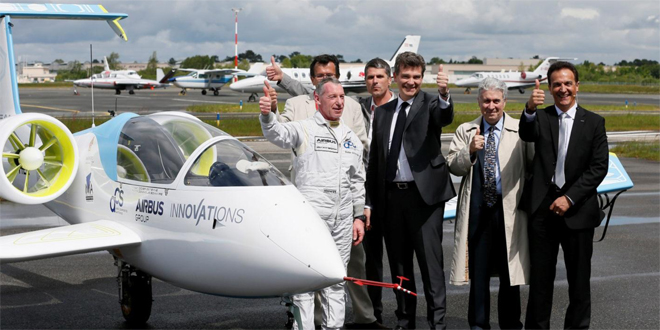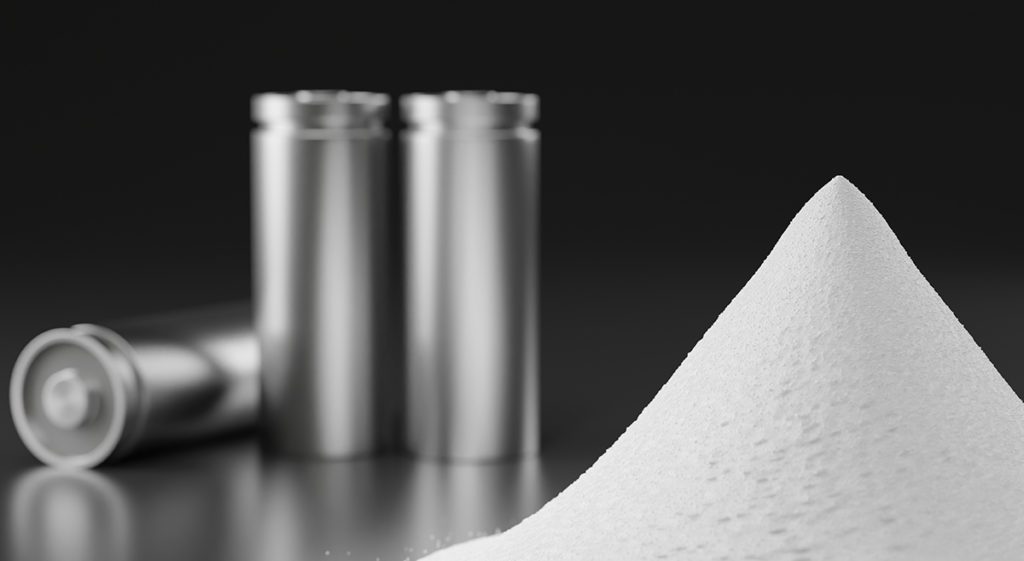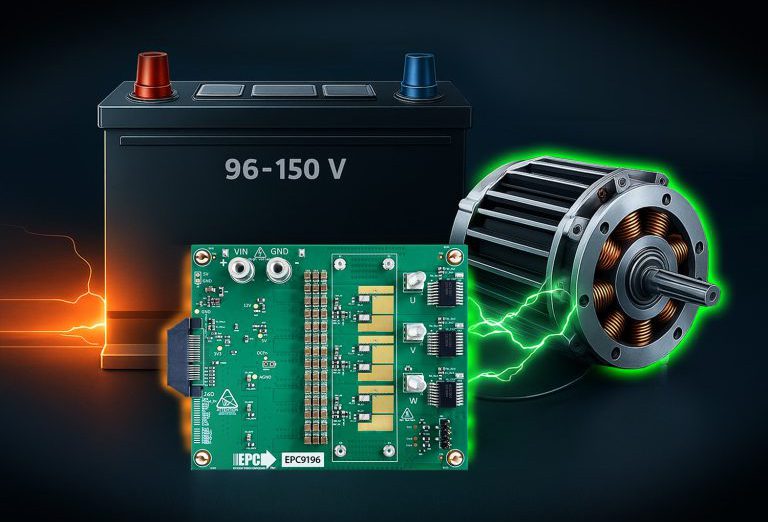The sky’s the limit for electrified transportation. European aircraft manufacturer Airbus has a vision of a hybrid 80-90-seat regional airliner that would have high-density energy storage in the wings, and a kerosene or biofuel generator to quickly recharge the batteries on the ground or in flight.
An electric-powered turboprop airliner could be operated at a fraction of the cost of current-generation planes, says Airbus Group Chief Technical Officer Jean Botti. As demand for air travel grows, electric power may be the only way to meet the European Union’s Flightpath 2050 targets of reducing aviation CO2 emissions by 75%, nitrous oxide emissions by 90% and noise levels by 65% from year-2000 levels.
No need to buy your tickets just yet, though. Airbus imagines the hybrid airliner going on the market in the 2030s.
For now, the consortium plans to build two models for the general aviation market, which it hopes will be stepping-stones to larger aircraft. Airbus Group is setting up a new subsidiary, VoltAir, to develop and produce the two-seat E-Fan 2.0 and the four-seat E-Fan 4.0. Officials say prices will be competitive with those of current piston-engine light aircraft – around $300,000 – but with far lower operating and maintenance costs.
The Airbus Group has been researching electric-powered flight for years, and has demonstrated a couple of test aircraft. In April, the company unveiled the E-Fan, the first aircraft to be developed from the ground up as an electrified vehicle.
Built entirely out of composites, the E-Fan demonstrator weighs 580 kg (1,280 lb) and seats two. A pair of 30 kw electric motors drive an eight-blade ducted fan, and 127 kg of lithium-ion polymer batteries deliver 250 volts and 100 amps of power. The battery compartments, in the inboard section of the wings and away from the cockpit, are well vented and passively cool the batteries, a result of lessons from Boeing 787 Li-on battery problems. Cruising speed is around 160 kph.
The longest test flight so far lasted 37 minutes. Airbus is working on a more efficient battery solution that should enable endurance of one hour, with 15 minutes of reserve power. Engineers are working on a range extending engine that would raise endurance to 3.5 hours. A specially designed charging unit can deliver a full charge in 1.5 hours.
Current production plans call for the e-aircraft to be built in a new factory near Bordeaux, which will have the capacity to build as many as 80 E-Fans each year. Airbus believes the market is strong, particularly from training schools. The E-Fan 2.0 is expected to fly by the end of 2017, and the E-Fan 4.0 will follow two years later.
Source: Aviation Week
Image: Airbus Group



















































































